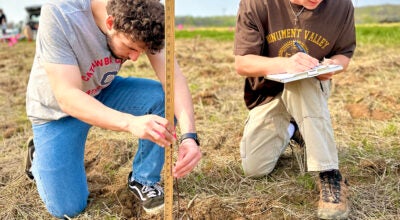New challenges could emerge in swapping out RSS student devices
Published 12:00 am Thursday, July 9, 2020
By Carl Blankenship
carl.blankenship@salisburypost.com
SALISBURY — Rowan-Salisbury Schools, now facing the possibility school buildings may not reopen at the beginning of the school year, could require more time than usual to swap out old devices issued to students.
RSS approved the purchase of a new round of devices to issue to staff and students shortly after schools were shut down by executive order from Gov. Roy Cooper in March.
The decision was made because the district was at the end of its previous three-year lease cycle and with the understanding electronics like Apple iPad tablets could become difficult to come by in bulk. Before the shutdown, some board members wanted the district to explore extending the lease cycle to four years or possibly looking for other vendors.
Chief Technology Officer David Blattner said the district will already be delaying device collection until September to not complicate reopening schools more than necessary. The district gave take-home devices to K-2 students who would normally only use them in classrooms after the shutdown was ordered. RSS opted to let students keep the devices during the summer to keep summer learning opportunities available to them and help stay in touch with families. RSS is a 1:1 district, meaning all students K-12 are issued a device.
This year, there will also be more to the exchange process than just taking an old device from a student and giving them a new one. The district is still in the upset bid process for the sale of the devices students are using right now. Bidders can return with increasing offers in rounds until the bids stop going up. The bids have climbed up to nearly $4 million for the old devices. Blattner said some companies guarantee they will not resell them for education — a growing businesses because 1:1 is a relatively new standard in education.
Blattner said the district only wants to sell its devices, all 20,000 or so, to a single company. Some smaller companies were interested in only buying a portion.
“It hasn’t really impacted the price having that service in there or because of the delay,” Blattner said. “I think there is a higher demand for devices because of COVID.”
The vendors purchasing the devices often purchase with the intention of refurbishing them and selling the devices to schools overseas or on the refurbished market.
Blattner said the cost for the company collecting the devices is included in the bid. Whichever company wins will, if necessary, be on site for drive-thru exchange. After a device is handed off, the district will follow immediately behind with a new device. The district has already accounted for difficulty reclaiming some devices and that some may be returned destroyed.
The district also distributed materials when schools shut down and others have come to schools to pick up meals in a drive-thru format. Blattner said the district wants families to return devices in the way it specifies if possible, but there may have to be some other collection measures taken.
If schools are allowed to reopen and students can simply bring devices to classes, it would simplify the process, Blattner said.
Cooper opted to not make an initial decision on how schools will reopen on July 1 after phase two of reopening was extended into mid-July.



